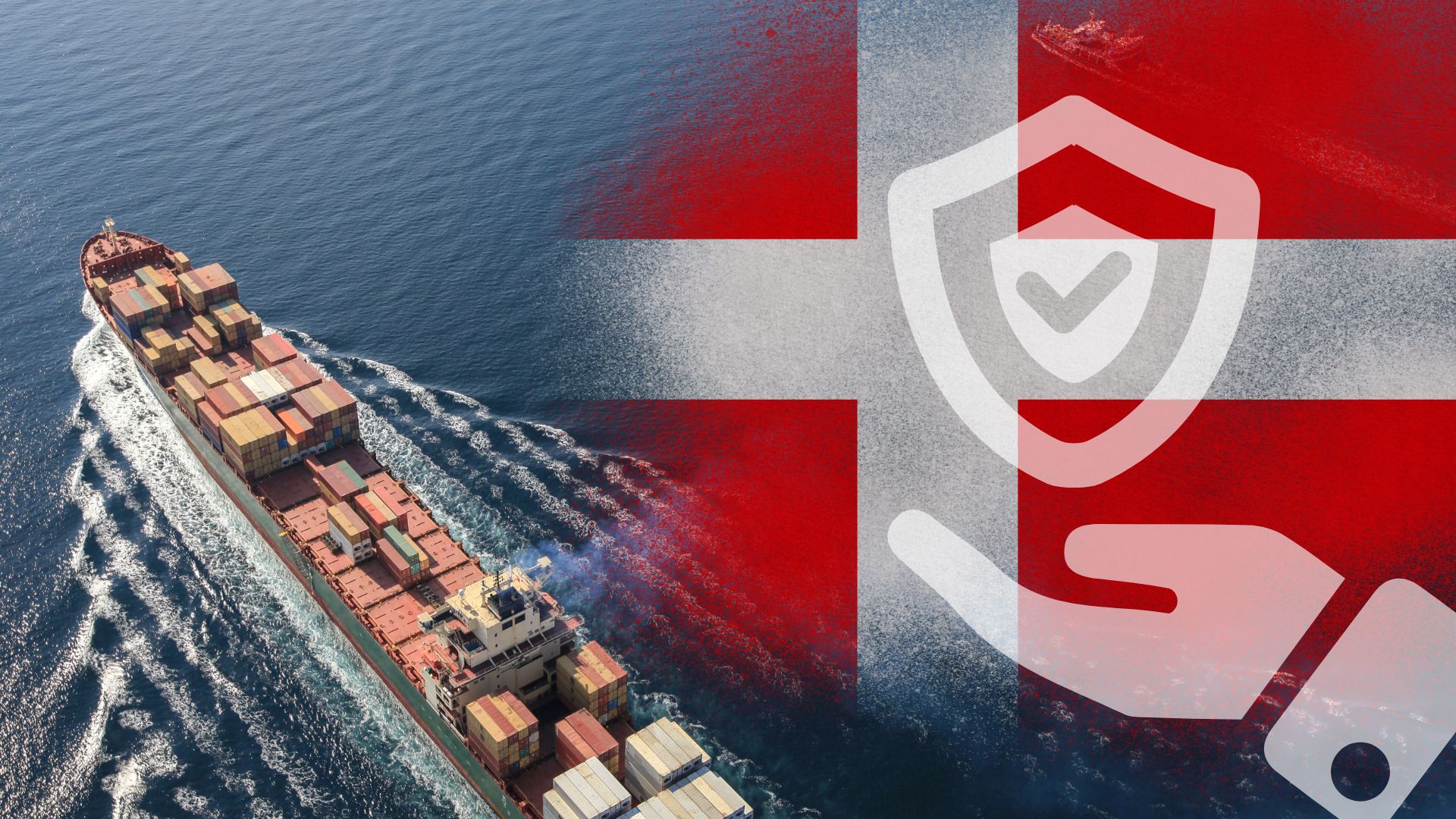Denmark Plans $1 Billion War Insurance for Merchant Shipping Fleet
Denmark has announced an ambitious $1 billion plan to establish war insurance for its merchant shipping fleet, an initiative designed to protect one of the country’s most vital industries in the face of growing global uncertainties. This state-backed insurance program is not just a precautionary measure for geopolitical crises; it is a reflection of Denmark’s deep reliance on maritime trade and its proactive approach to keeping commerce afloat, even in the worst situations.
Why Protecting Denmark’s Merchant Fleet Matters
Denmark plays a huge role in global shipping, and its merchant fleet is a big deal, worth over $20 billion. It’s a key player in keeping goods moving around the world. A major chunk of this fleet is run by A.P. Moller-Maersk, the second-largest container shipping company on the planet. With more than 700 ships, Maersk manages a staggering 17% of all global container trade. That’s a lot of stuff getting from point A to point B! Business Minister Morten Bodskov underscored the urgency of this legislation, stating that “with global tensions and war on European soil, we must be prepared—even for the most unpleasant scenarios.” The government plans to activate the War Insurance Institute, a public entity, and provide it with access to a $950 million loan facility meant to cover claims if traditional insurance markets collapse during times of conflict. These measures are an absolute necessity due to an alarming statistic: incidents of maritime security within eighteen months involving commercial ships has increased by 43%. From In the Red Sea disruption to Gulf of Aden attacks, the global shipping industry faces steeper economic risks, rendering insurance in the case of war not a luxury but a prerequisite.
Why Should Consumers Take Interest
At first glance, this might sound like something that only matters to shipping companies or government officials. But here’s the thing—it actually connects to your everyday life in ways you might not expect. Imagine if a shipping company suddenly can’t get insurance because of global tensions, they might have to stop operations or jack up their prices to cover the risks. And what does that mean for you? Well, it could lead to higher prices on the things you buy…everything from your favorite gadgets to basic household items. War risk premiums on shipping routes have already skyrocketed in some areas, going up tenfold, and consumers are taking note of much higher costs for their goods. Denmark’s move to fund this war insurance is like a safety net for its shipping industry. It helps keep goods moving, even when the world gets messy, and that stability can prevent sudden price hikes or supply chain chaos. It’s not just about Denmark, it’s about keeping the global flow of goods steady for everyone.
Bigger Impacts on the Shipping Industry
This policy doesn’t just affect Denmark’s economy; it sends a broader signal across the global shipping industry. Other maritime nations such as Singapore and Greece are exploring similar initiatives, with some considering public-private partnerships to close insurance gaps. These developments highlight a trend toward governments stepping in to underwrite stability when traditional markets fall short. The initiative also aligns with a changing risk landscape. Increased global conflicts and the strategic importance of global trade routes have turned maritime security into a geopolitical issue. What’s particularly notable is that countries like Denmark are no longer waiting for crises to happen before acting. Instead, they’re taking preemptive measures to protect national assets and maintain their economic flow.
Why War Insurance Is On the Rise
The concept of war insurance isn’t new—in fact, it dates back centuries. Marine insurance policies as early as the 17th century routinely included war risk clauses. Back then, naval conflicts and piracy were simply part of doing business at sea. Why Is War Insurance Becoming More Important? War insurance has been around for a long time, going back hundreds of years when ships faced dangers like piracy and naval battles. Over time, as ships became more valuable and trade expanded, insurance policies evolved to cover bigger risks. Today, the need for war insurance has risen again because of events like the war in Ukraine. When Russia invaded in 2022, dozens of ships got stuck in Ukrainian ports, and many were damaged or destroyed. These ships were eventually declared total losses. For shipowners, that’s not just a headache—it’s a financial disaster. War insurance helped companies recover some of their losses and keep their businesses afloat during the chaos. Another reason for the rise in war insurance is the ongoing risk of piracy and attacks on shipping routes. Even though progress has been made in fighting piracy, it hasn’t gone away completely. Key routes like the Gulf of Guinea and the Singapore Strait still see incidents of armed robbery on ships. War insurance gives shipping companies a safety net when operating in these dangerous areas. It’s not just about physical dangers anymore. With modern technology, new threats like hacking and GPS jamming have entered the picture, causing major disruptions. A single cyberattack could bring a ship to a standstill, which is why having this kind of insurance is more important than ever. Why does all this matter to you? Because war insurance doesn’t just protect shipping companies; it helps keep trade moving smoothly. That means the food, gadgets, and other goods you rely on are more likely to arrive on time and at a reasonable price. By putting money into war insurance, countries like Denmark are helping to stabilize global trade, even in tough times.


